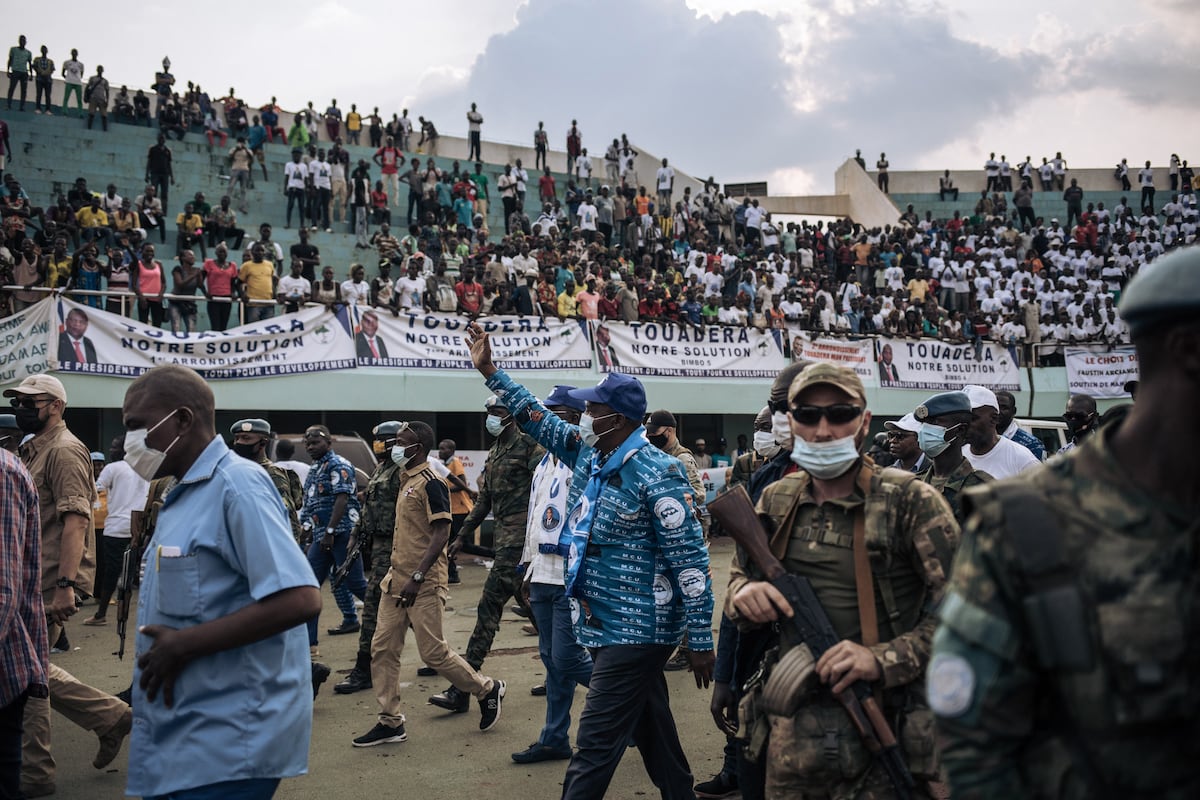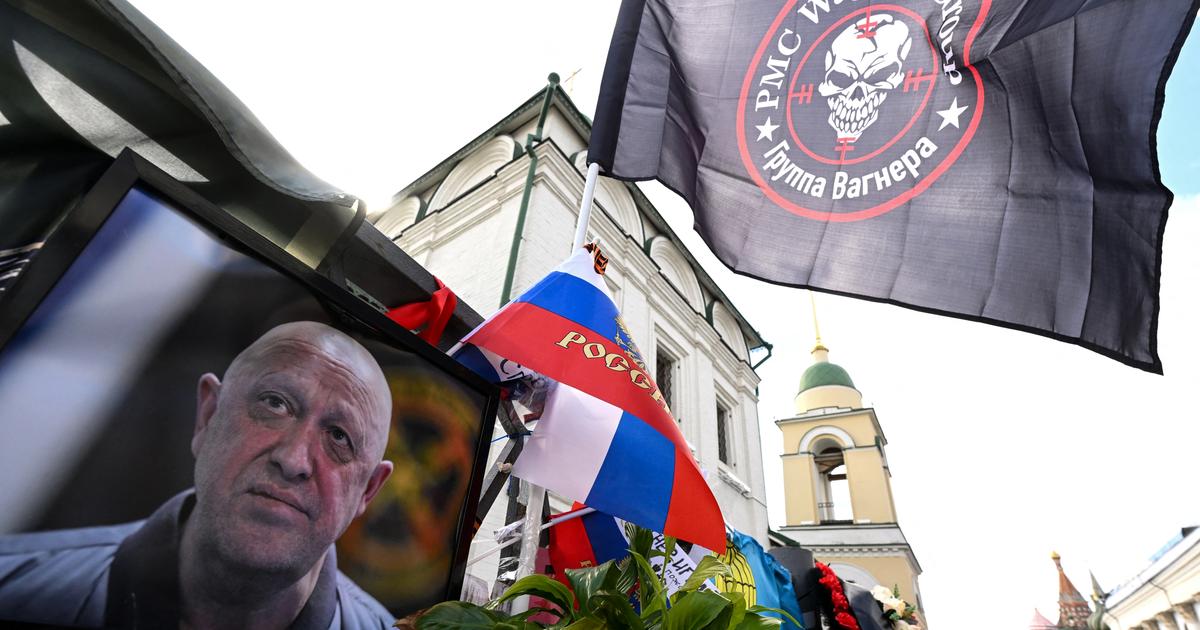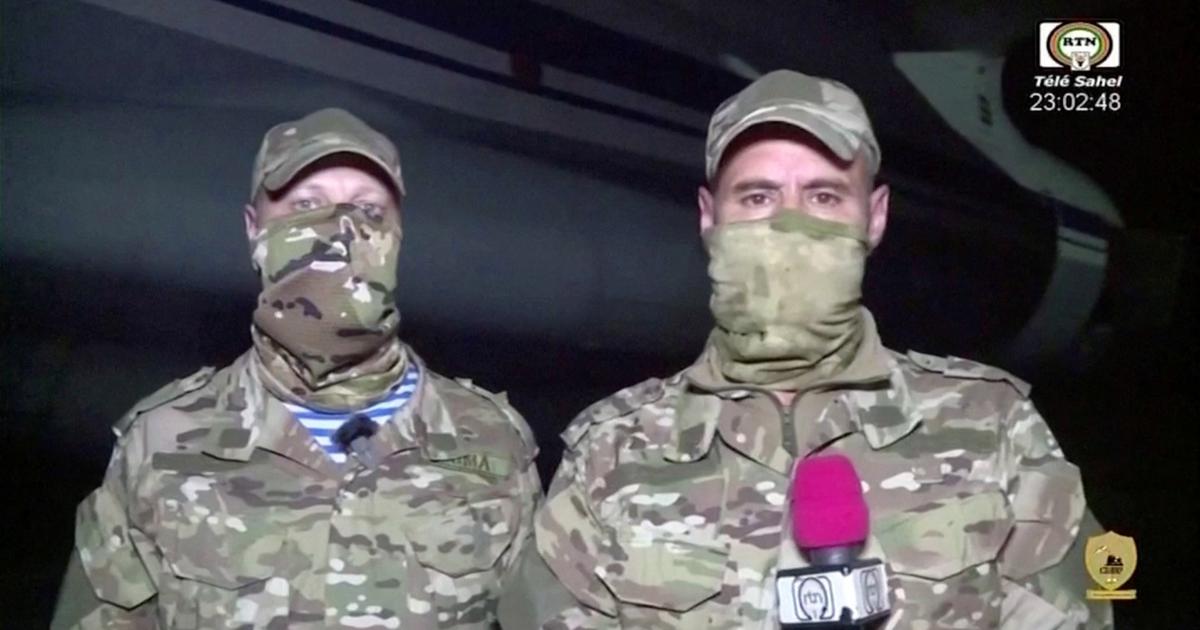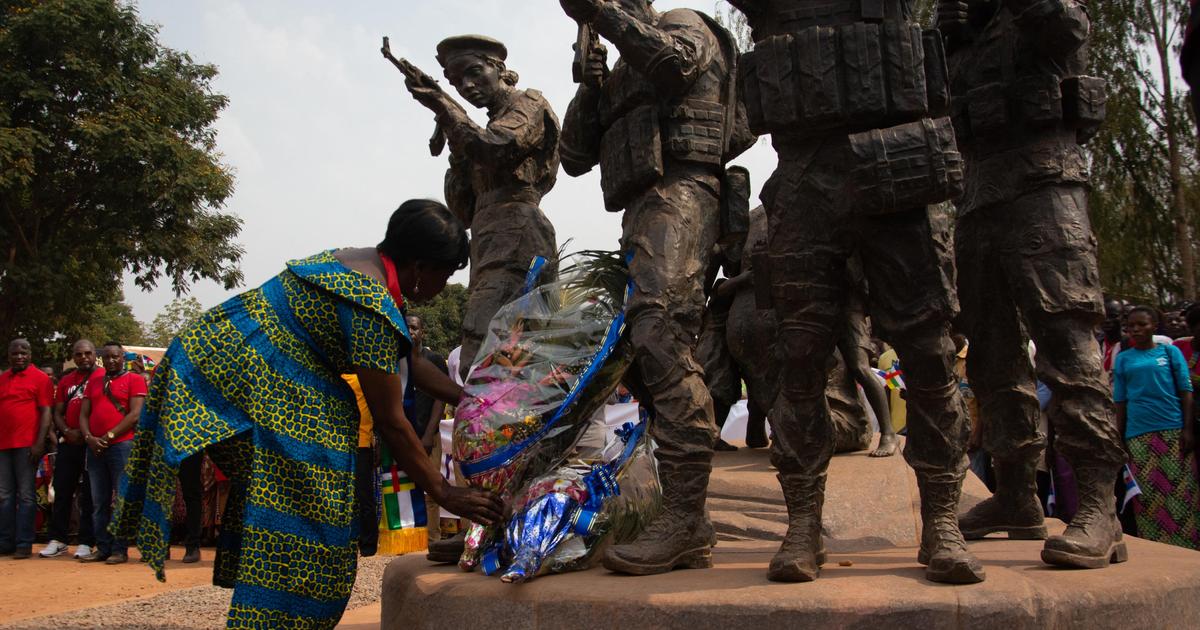Russian citizen Dimitri Sytii appeared on the European Union's sanctions list on February 25.
According to the letter, Sytii, 34, "has a prominent role in the Wagner group in the Central African Republic and close ties to Yevgeny Prigozhin."
The latter is the head of the network of Russian mercenaries spread across Africa, the Middle East and Ukraine.
It was Prigozhin who alerted on his social networks last December that Sytii had been the object of a package bomb attack in Bangui, the Central African capital.
It happened on December 16;
Nine days later, the head of the Wagner group visited Sytii, who had already been transferred to a hospital in Russia.
He posted two photos.
In one, the patient appeared asleep with his right hand bandaged.
In the next one, the young man greeted the camera, but there was another novelty:
Central African Republic (5.5 million inhabitants), one of the corners of the world hardest hit by misery ―it ranks 188 out of 191 in the Human Development Index―, is the great laboratory of Russian power abroad through the Wagner group;
there where the tentacles of this organization have spread with greater success through the economic, propaganda and military arteries.
The sanction text issued by Brussels against Sytii stated the following: "Given his influential position (...) he is responsible for the serious human rights abuses committed by Wagner" in the country.
Among these abuses, denounced by NGOs and United Nations rapporteurs, are intimidation, arbitrary detention, torture, forced disappearance and summary execution of citizens.
The companies
Sytii worked on December 16 in the performance of his tasks as director in that country of Casa Russia, a cultural appendage of the Russian Foreign Ministry.
That publicly.
Both Brussels and Washington give him another role: this thirty-something is the founder of the company Lobaye Invest, registered in Bangui in October 2017 for the exploitation of mineral resources in the country, and included in the list of restrictive measures of the EU and USA.
Another businessman, Yevgeny Khodotov, collaborates with Sytii in the management of Lobaye, a subsidiary of M-Finans, a front company for Wagner's businesses under Prigozhin's control.
At the end of that 2017, Russia had already raised with the United Nations its interest in sending weapons to the Central African country, the object of an embargo since 2013, the year in which the war between Christian and Muslim militias caused the death of nearly 5,000 people.
The FACA, the Central African army, could not impose its force, so the UN gave the go-ahead to Moscow.
Along with the weapons came instructors, defense deals, a political alliance, and concessions in the gold and diamond markets.
"Russia," says Enrica Picco, director of Crisis Group Central Africa, from Nairobi, "has created a model of success in the Central African Republic that it can export to any other country where it sees opportunities."
According to Picco, Moscow has managed to install a "
hub
military” in this country, a center of influence guarded by Wagner, from where it could expand to other territories, such as Mali or Burkina Faso.
All this, with a price to pay: dozens of Wagner mercenaries have died in combats against rebel militias for control of mining or customs areas, as well as in skirmishes with the Central African army itself.
But there is also a benefit: according to a diplomatic cable aired by the
Politico
publication in January, the profit from the exploitation of the country's mines could have fattened the coffers of the Prigozhin group by around 1,000 million dollars (about 922 million euros ).
Russian President Vladimir Putin greeted his Central African counterpart, Faustin Archange Touadera, in October 2019 at a meeting in the Russian city of Sochi.Mikhail Svetlov (Getty Images)
One of the best investigations on the great Russian influence in this country was published last December by the French research project All eyes on Wagner (AEOW), together with the Dossier Center, linked to the Russian opposition magnate Mikhail Khodorkovsky, and the network European Investigative Collaborations.
In one of the photographs included in the report, Sytii appears in an act with Central African authorities together with Yevgeny Kopot, a trusted man of Prigozhin in Bangui, a Wagner mercenary, and the Russian gemologist Svetlana Troitskaia, who worked for the Diamville company.
This firm is allegedly in charge of trading the diamonds and gold exploited in the mines, that is, taking them out of the country, generally through the Cameroonian port of Douala.
Diamville, which the EU considers a front company for Wagner,
In various photographs and videos posted online, Sytii appears as Kopot's translator from Russian to French at public events.
Before disembarking in Bangui, Sytii, a graduate in Economics and Finance in St. Petersburg, studied a master's degree in marketing in Paris and another in cultural management at a Spanish university between 2011 and 2012. The EU also links him to Diamville ―AEOW research assures that a Sytii driver, Bienvenu Patrick Setem Bonguende, is the one who appears in charge of the mineral trading company―, and two other companies linked to Moscow: Sewa Security Services, which has formed the Praetorian guard of Russian uniforms in defense President Touadéra, and Lengo Songo radio, a Russian propaganda organ.
All this framework has been included in the Brussels sanction package since February 25.
Wagner's Men
But there is more: Brussels also sanctions Alexander Ivanov, head of the Union of Officials for International Security, a new entity based in Russia under which the instructors that Moscow has sent to Bangui to train the FACAS are supposedly framed;
Konstantin Pikalov, nicknamed
Mazai
, one of Wagner's veterans in Africa and who, according to the official EU newspaper in which the reasons for sanctions are specified, is suspected of instigating the death in 2018 of three Russian journalists in the Central African Republic;
and, finally, Vitalii Perfilev, Touadéra's security adviser.
This work was supposedly carried out at the beginning and during the landing of Russia in the country, between 2017 and 2018, Valery Zakharov, sanctioned on this occasion by the United States.
Wagner's intervention in the Central African country - there are around a thousand mercenaries on the ground - was received with strong support by the local population after years of French influence and a period of great violence, which neither the mission nor the mission knew how to liquidate. UN military (Minusca) nor the operation sent by the EU, today focused only on training.
Five years after the Russian landing, however, instability persists, while reports of abuses committed by Prigozhin's men against the civilian population and over mining resources grow.
"There is growing discontent," says Remadji Hoinathy, a researcher at ISS Africa, from Dakar, "from civil society, the media and political parties."
IN ENGLISH
The African laboratory of the Wagner Group: Diamonds, violence and political alliances
After learning that Sytii had been the target of an attack - the bomb package he received in an office contained a USB that exploded when inserted into a computer - Prigozhin issued a statement in which he blamed France and its allies, including the United States, for to be behind the attack.
On the 1st, Sytii, already recovered, offered details about the investigation in an interview with Russia Today (RT).
The package, sent via DHL, arrived in Bangui from Togo.
According to video surveillance images held by the Central African authorities, the emitter was a man between 30 and 40 years old.
He provided a Spanish identity document under the name of Alex Sevillano Mingueza to carry out the mail.
During the interview with Sytii, RT spread the photograph of a copy of this supposed DNI.
03:49
What is the Wagner Group?
03/03/2023 10:03:28Yevgeny Prigozhin, founder of the Wagner mercenary group, pictured in Bakhmut, in an image taken in March 2023. Photo: REUTERS |
Video: EPV
Follow all the international information on
and
, or in
our weekly newsletter
.
Subscribe to continue reading
Read without limits
Keep reading
I'm already a subscriber














